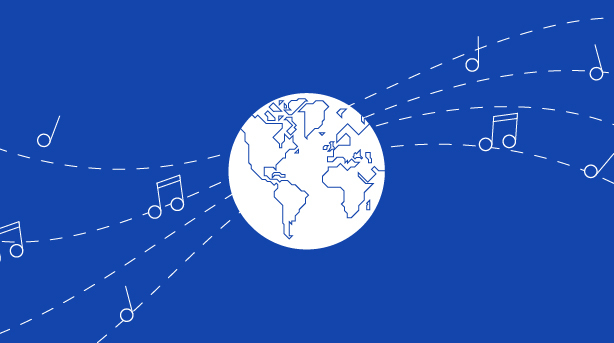What does “indie record label” mean?
There’s more room in the music world for successful indie labels than ever before. But what does an independent record label do?
Each year the number of artists going independent continues to grow. Indie record labels are giving artists a new way to make music on their own terms, away from the dominance of major record labels.
Indie labels are part of a grassroots, DIY section of the music industry that keeps on building momentum. Through independent labels, artists can discover unique opportunities and join a vibrant DIY community.
What’s the difference between an indie record label and a major record label?
The major labels are Sony Music, Warner Music and Universal Music, often referred to as the Big Three record labels. These three music companies all dominate the mainstream music market, owning innumerable offshoots of smaller labels and publishing arms. Major record labels have huge budgets which they pump into artist promotion, studio time and touring, and they’ll often have big teams.
Any label that isn’t under the umbrella of one of the major record companies is considered an independent label – no matter how global the indie’s reach. Examples of indie labels include Spirit Goth, The Latest Sounds and Soave Records.
What are indie record labels like?
You’ll typically find less “mainstream” music being put out by an independent record label. Often the label will sign artists based around one genre of music. There’ll be niche artists whom major labels aren’t willing to take a risk on, and who don’t fancy being locked into a complicated contract with a big company.
Indie record labels are often founded by resourceful music artists driving their own success. Artists can start out as an “artist label” – structuring themselves like a one-person, single-artist record label; releasing music themselves; organising their own tours. They might sign to or form an independent label themselves once they’re established and more successful.
What are the benefits of signing to or running an indie record label?
Independent labels generally work closely with the artist at every stage of the release. Check out our interviews with DIY labels and artists here to discover more about life running, and releasing under, an independent label.
How do independent record labels release music?
Like major record labels, there’s a variety of release options for indie labels, from vinyl records and CDs to online. The rise of the digital age means that there’s more promotional opportunities for independent labels than ever before, and more space in the market for independent artists to rise.
To release their artists’ music online independent record labels can use a digital music distributor like RouteNote. Since 2007, RouteNote has been helping indie labels and independent artists get their music onto streaming services and digital stores such as Spotify and Apple Music, free of charge.
Music distribution for indie labels with RouteNote
RouteNote offers unlimited music uploads from unlimited artists on one label. We’re an independent company with indie music at our heart. Indie record labels aren’t tied down to releasing music with RouteNote, free to leave or change their distribution plan at any time.
With Free distribution labels keep 85% of revenues. We also offer Premium distribution, which means the label keeps 100% of money earned; something established labels might be more drawn to.
We also help labels and artists get their tracks on social media platforms such as TikTok and Instagram, as well as monetising music on YouTube.
Starting an independent label? Find out more about RouteNote music distribution here.
